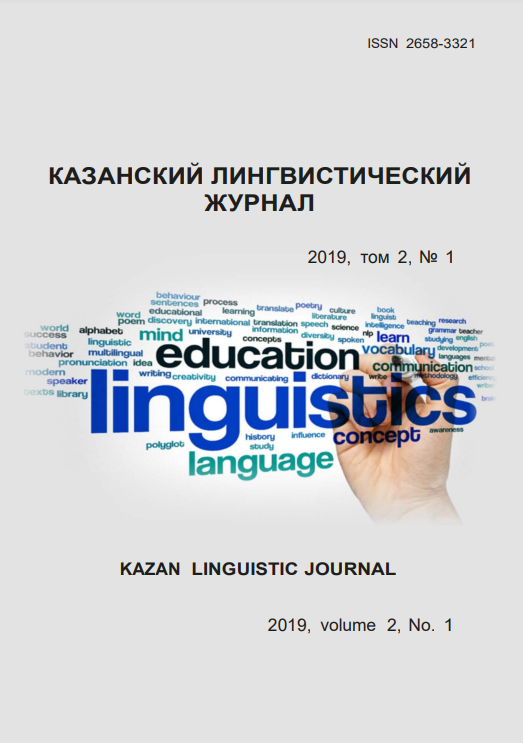The peculiarities of translation of American teenager`s vocabulary into Russian (on the basis F. Kast's novels)
Keywords:
slang, colloquial vocabulary, translation, English and Russian languages, F. Kast, American youthAbstract
The article deals with the translation of the colloquial vocabulary of the American youth and the complexity of their translation from English into Russian language. As a source of examples was taken the series of books written by the popular American writer F. Kast. A translation into Russian was made by V.A. Maximova. In this article, we analyze examples of the usege of youth slang, most of which can be attributed to the vulgar and abusive vocabulary. Speaking about the Russian translation, it should be noted that V.A. Maksimova most often selected functional analogs, omissions, replacements and compensations. In our opinion, the translator did her best to as close as possible, in terms of stylistics, to the original. Despite this, it should be said that in any case even the most masterfully executed translation loses the original, since not a single translator can convey all the specifics and color of the original language.
References
Литература
Вендина Т.И. Введение в языковедение. М.: Высшая школа, 2002. 228 с.
Верещагина Е.М., Косомаров В.Г. Лингвострановедческая теория слова. М.: Русский язык, 2000. 320 с.
Девкин В.Д. Немецкая разговорная речь. М.: Международные отношения, 2001. 257 с.
Заботкина, В.И. Новая лексика в современном английском языке. М.: Высшая школа, 2001. 126 с.
Залевская А.А. Слово в лексиконе человека: Психолингвистическое исследование. Воронеж: Изд. Воронежского Универститета, 2001. 207 с.
Каст Ф. Меченая // URL: http://knizhnik.org/f-k-kast/imechenaja (дата обращения: 20.11.18).
Маяковский М.М. Современный английский сленг: Онтология, структура, этимология. 2-е изд. М.: Едиториал УРСС, 2005. 168 с.
Cast F. Marked // URL: http://18novels.com/2434817-marked.html (дата обращения: 20.11.18).
Urban dictionary // URL: https://www.urbandictionary.com/ (дата обращения: 05.12.18).
References
Cust, F. Marked [Mechenaya] // URL: http://knizhnik.org/f-k- kast/imechenaja (accessed: 20.11.18). (In Russian)
Cast, F. Marked // URL: http://18novels.com/2434817-marked.html (accessed: 20.11.18). (In English)
Devkin, V.D. (2001). Nemetskaya razgovornaya rech' [German colloquial speech]. M.: Mezhdunarodnyye otnosheniya. 257 p. (In Russian)
Mayakovsky, M.M. (2005). Sovremennyy angliyskiy sleng: Ontologiya, struktura, etimologiya [Modern English Slang: Ontology, Structure, Etymology]. 2nd ed. M.: Editorial URSS. 168 p. (In Russian)
Vendina, T.I. (2002). Vvedeniye v yazykovedeniye [Introduction to linguistics]. M.: Vysshaya shkola. 228 p. (In Russian)
Vereshchagina, Ye.M., Kosomarov, V.G. (2000). Lingvostranovedcheskaya teoriya slova [Linguistic theory of words.]. M.: Russkiy yazyk, 2000. 320 p. (In Russian)
Zabotkin,a V.I. (2001). Novaya leksika v sovremennom angliyskom yazyke
[New vocabulary in modern English]. M.: Vysshaya shkola. 126 p. (In Russian)
Zalevskaya, A.A. (2001). Slovo v leksikone cheloveka: Psikholingvisticheskoye issledovaniye [The Word in the Human Lexicon: Psycholinguistic Research]. Voronezh: Izd. Voronezh University. 207p. (In Russian)
Urban dictionary // URL: https://www.urbandictionary.com/ (accessed: 05.12.18).






